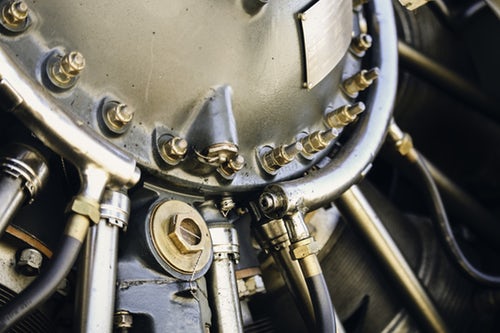Overview
Maximise your employment opportunities on this course, which responds to the UK engineering skills gap and the global demand for multiskilled engineers by providing industry-relevant content, placement opportunities and input from research-active teaching staff. This means our graduates are equipped to work at the forefront of this exciting industry in roles responsible for designing and developing the world around us.
You will grow your skills across core engineering disciplines by studying modules such as Advanced Solid Mechanics and Advanced Thermodynamics, and by choosing from a range of optional modules, including Resource Efficient Design, Robotics and Digital Manufacturing. You will be supported by our academics and technicians with your individual project, a substantial piece of work focused on your specific research interests.
In addition, you will learn about the environmental impact of human activities and energy consumption, as well as the role of the mechanical engineer in seeking solutions to the immediate needs of society. The course builds your transferable skills by giving you an insight into the engineering business environment and by broadening your understanding of other engineering disciplines.
Our graduates are working as engineers in design, development, research and manufacturing roles for companies including BMW, Siemens and Ricardo.
Key features
- Accredited by the IET, which ensures you will develop the appropriate skills and knowledge for an engineering career and professional registration.
- Learn from research-active teaching staff who are involved in research areas including combustion modelling and energy conversion, computational theology and surface engineering.
- Develop your practical skills in our facilities, which include laboratories for the study of thermo-fluids, solid mechanics and dynamics with control, an energy laboratory for thermodynamics, and mechanical workshops fitted with computer numerical control machine tools.
- Meet like-minded people and get hands-on engineering experience by joining our student societies, including DMU Racing, where students design and build a car to race at Silverstone.
- Boost your career prospects through an optional one-year placement* where you can gain industrial experience in your area of interest. Previous Engineering students have undertaken placements with companies including, Caterpillar and Network Rail.
- Prepare for a career in a wide range of industries including robotics and automation, machine vision, consumer products and manufacturing. Opportunities also exist for further academic study towards a doctorate degree and a career in research.
Structure and assessment
Course modules
- Individual project
- Study Skills and Research Methods
- Digital Manufacturing
- The Business Environment
- Advanced Thermodynamics and Heat Transfer
- Robotics
Optional Modules:
- Resource Efficient Design (RED)
- CFD
- Nonlinear Dynamic and Control
- Systems Operations Management
- Advanced Composite Materials
- Leadership and Management
- Advanced Solid Mechanics
- Computer Aided Design and FE analysis.
Facilities and features
Facilities
The main mechanical lab is a large open-plan space designed to accommodate the study of thermo-fluids, solid mechanics and dynamics. It also has an area with machine tools for manufacture of student designs.
There is a purpose built engine testing facility with full instrumentation to measure engine performance and emissions. This facility is normally used by our final year engineering and research students. Typical student projects include running the engine with alternative fuels such as bio-fuels and water-in-diesel emulsified fuels to improve performance and emission characteristics.
An additional CAD design suite shared with the Mechanical and Design programmes provides access to computing facilities with specialist CAD design tools such as ProEngineer Creo2, Solidworks, Autodesk Multiphysics Simulation software
Learning zones
Our Learning Zones and the The Greenhouse also provide space for group or individual work and study.
There are 1,600 study places across all library locations, more than 700 computer stations, laptops to borrow, free wi-fi and desktop power outlets.
You can also book rooms with plasma screens, laptops and DVD facilities for group work and presentations, secure an individual study room with adjustable lighting or make use of our assistive technology.
Library services
The main Kimberlin Library is open 24 hours a day, 365 days a year (other than in exceptional circumstances) and offers a huge range of online resources, all of which can be remotely accessed from anywhere you choose.
The library is run by dedicated staff who offer additional support to students, including help with academic writing, research strategies, literature searching and reference management and assistive technology, and mathematical skills for non-maths students. There is also a Just Ask service for help and advice, available via email or telephone.
Opportunities and careers
#DMUglobal
This is our innovative international experience programme which aims to enrich your studies and expand your cultural horizons – helping you to become a global graduate, equipped to meet the needs of employers across the world.
Through #DMUglobal, we offer a wide range of opportunities including on-campus and UK activities, overseas study, internships, faculty-led field trips and volunteering, as well as Erasmus+ and international exchanges.
Graduate Careers
Graduates enjoy exciting career opportunities from a wide range of industries. These include robotics and automation, machine vision, manufacturing, automotive, aerospace, consumer products, material processing, energy, and power. They are likely to be employed as engineers, senior engineers and project leaders or managers for roles in design and development, research and development, manufacturing, product development, or any engineering role where understanding mechanical issues with insights is vital. You will also be prepared to undertake PhD study
Zobacz więcej na stronie uniwersytetu >>
Wiza studencka do Wielkiej Brytanii
Aby studiować w Wielkiej Brytanii potrzebujesz wizy studenckiej. Aby złożyć wniosek o taką wizę studencką musisz zdjać certyfikat językowy na poziomie B2.
Uważaj! Do celów wizowych musisz wybrać wyłącznie egzamin w wesji Secure English Language Test (SELT) UKVI .
Co to jest test SELT UK VI registration? Przeczytaj więcej o testach SELT UKVI >>




















